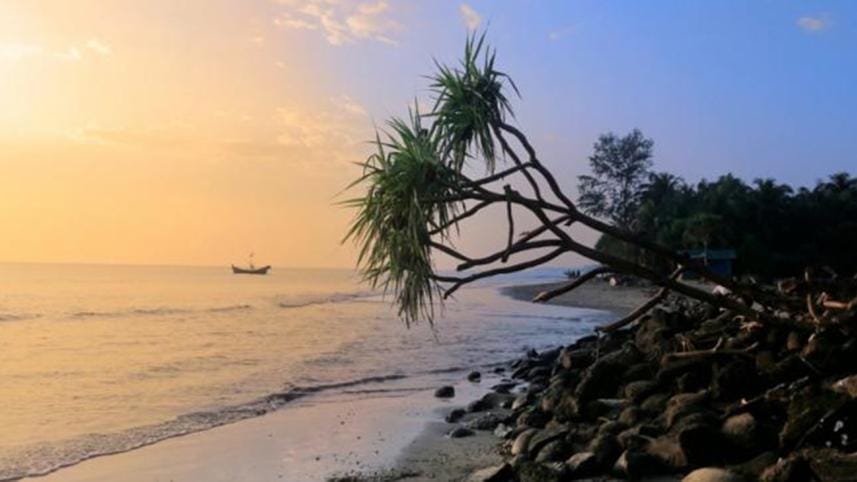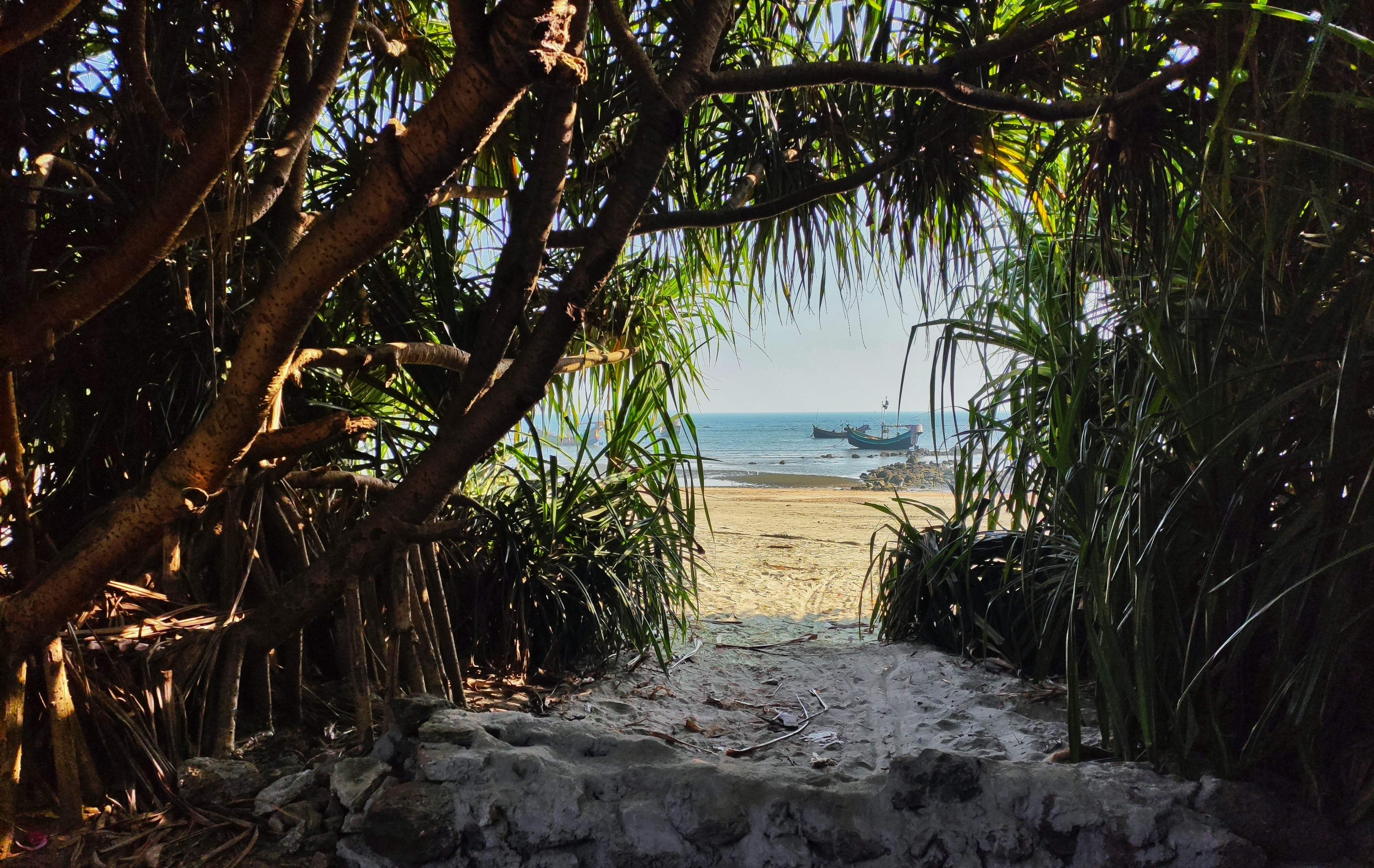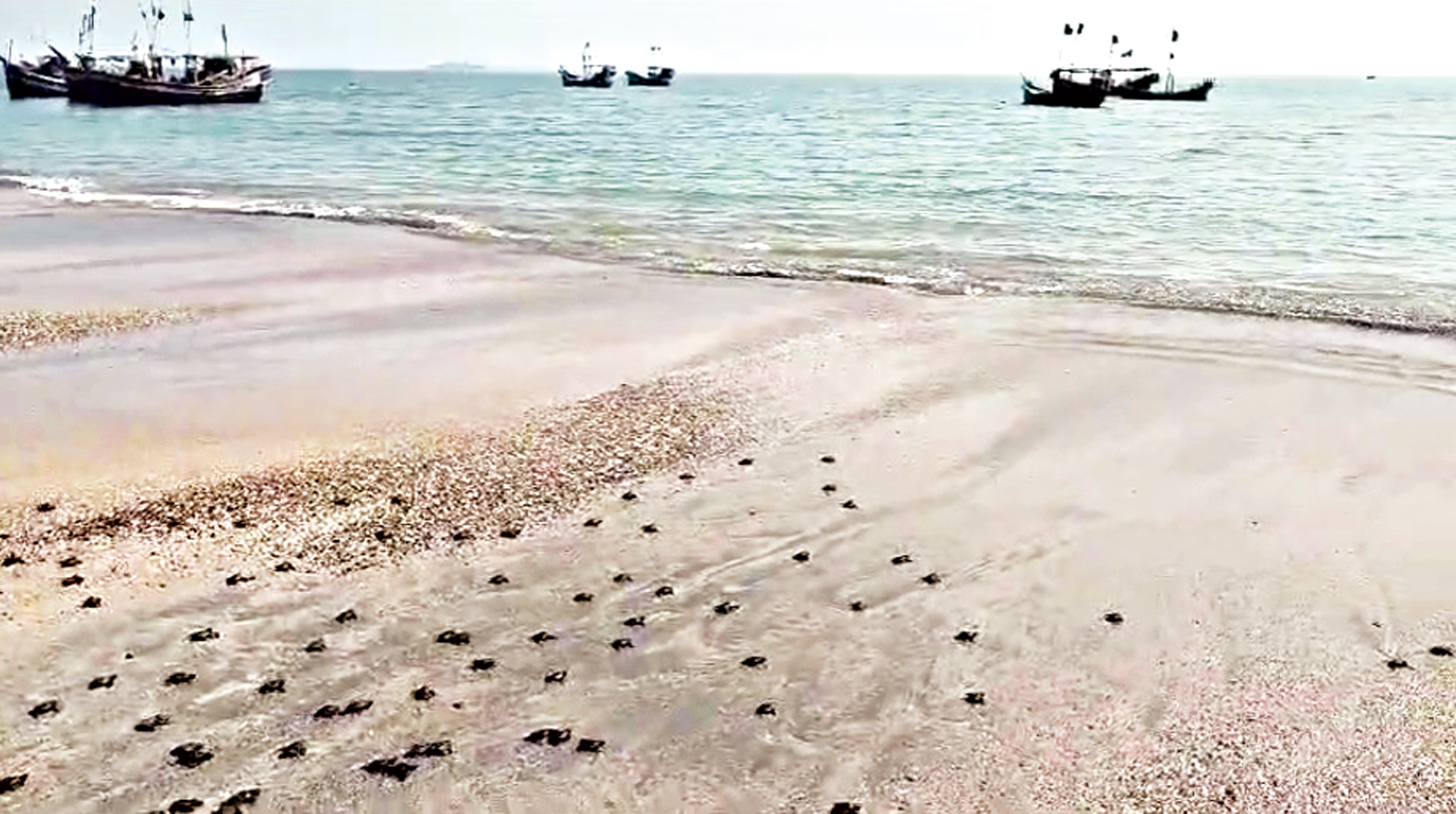Govt outlines 12 conditions for tourists to Saint Martin’s

In a major step toward promoting eco-friendly tourism, the government has introduced a set of guidelines to protect the environment and biodiversity of Saint Martin's Island, Bangladesh's only coral island.
The Ministry of Environment, Forest and Climate Change issued a notification today, outlining 12 specific conditions for visiting the island, including limitations on tourist numbers, travel schedules, and bans on single-use plastics and disruptive activities.
The rules have been enacted under Section 13 of the Bangladesh Environment Conservation Act, 1995, and follow the "Guidelines for the Protection of Environment, Ecosystem and Biodiversity of Saint Martin's Island and for Eco-Friendly Tourism, 2023."
The notification states that the Bangladesh Inland Water Transport Authority (BIWTA) cannot permit vessels to operate to Saint Martin's without prior approval from the ministry.
Tourists must purchase tickets through the Bangladesh Tourism Board's official web portal, each carrying a travel pass and a QR code. Tickets without QR codes will be considered invalid.
To reduce ecological pressure, the number of daily visitors is capped at 2,000. Travel and stay rules vary by season.
Under the new guidelines, tourist access to Saint Martin's Island will be strictly seasonal: only day trips will be allowed in November, with no overnight stays permitted; overnight stays will be allowed in December and January; and the island will be completely closed to tourism in February.
To protect the fragile coastal ecosystem, the government has also banned lighting, loud noise, and barbeque parties on beaches at night, as well as the use of motorcycles, sea bikes, or any motorized vehicles.
Additionally, tourists are prohibited from carrying polythene and are discouraged from bringing single-use plastics such as chip packets, plastic straws, and mini toiletry packs.
Entry into Keya forests, collection or trade of Keya fruits, and harming marine life — such as turtles, birds, corals, crabs, starfish, and seaweed — are strictly prohibited.
To reduce plastic pollution, tourists are discouraged from bringing chip packets, plastic spoons or straws, miniature soap or shampoo packs, and 500ml or 1000ml plastic water bottles to Saint Martin's Island.
Instead, they are encouraged to carry reusable water flasks.
The government aims to promote a sustainable tourism model that minimizes environmental impact while preserving the island's natural ecosystem for future generations.
Officials said the goal is to turn Saint Martin's into a model of responsible tourism, preserving its unique natural beauty and marine biodiversity for future generations.
A coordination meeting on eco-friendly tourism was held at the ministry on Tuesday, chaired by Syeda Rizwana Hasan, adviser to the ministry.
It was attended by Farhina Ahmed, secretary of the environment ministry, as well as representatives from the Ministry of Civil Aviation and Tourism, e-ticketing platform officials, and other stakeholders.
The government expects that full implementation of the guidelines will curb environmental degradation and promote sustainable, low-impact tourism on the island.



 For all latest news, follow The Daily Star's Google News channel.
For all latest news, follow The Daily Star's Google News channel. 

Comments